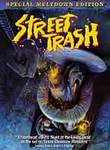LA Times:
Spirea Ciorobea, 68, portrayed as the “village mechanic and abortionist” in the film, is being represented by the lawyer’s group.
“I was approached in the street and asked whether I could play a welder,” he said. “Like many people here, I can’t find work, so I appreciated the chance to earn some money for my family. Later, they painted my arms up to my elbows with red paint. I had no clue what for and only realize now they wanted to show that I am covered in the blood of the women whose babies I was aborting. I would never have agreed to that, even if they had paid more than the $4 I was given. I am a Christian and oppose frivolous approach to abortion, and I think what they made me do was disgusting.”
Another “Borat” participant, Nicu Tudorache, was told that the fist-shaped rubber sex toy filmmakers attached to his amputated arm was a prosthetic.
Here.






















